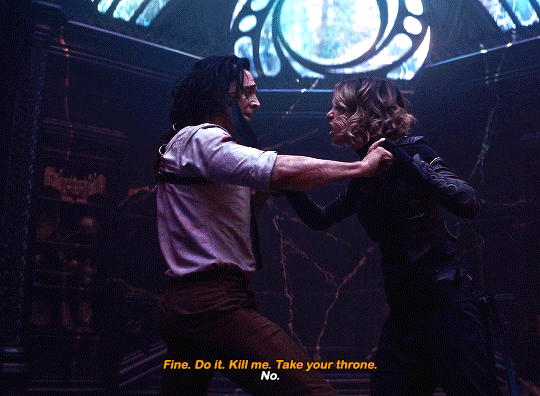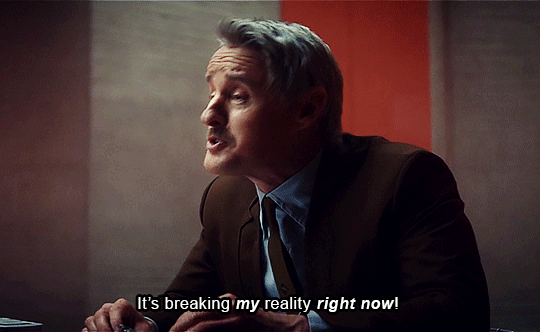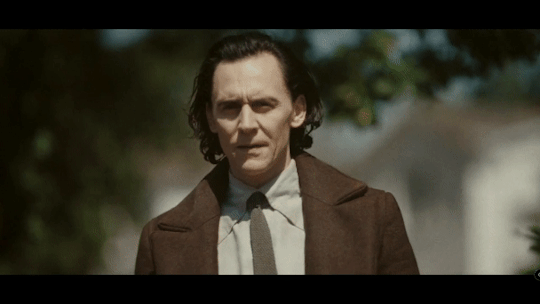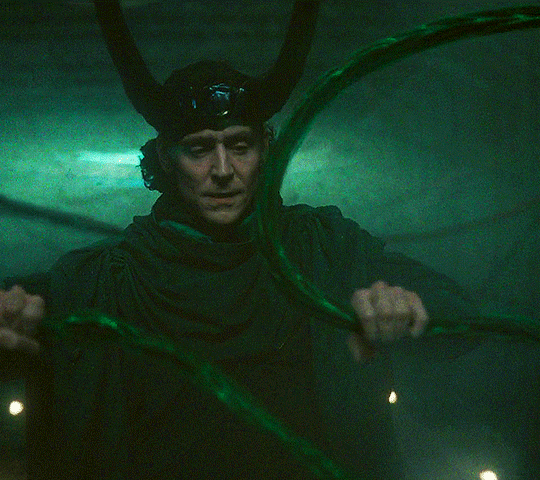#constrained fiction
Explore tagged Tumblr posts
Text








Gael García Bernal in Desierto (2015, dir. Jonás Cuarón)
(these gifs also feature Alondra Hidalgo)
Gifs are all 540px wide so you can click to see larger.
[other gael filmography gifsets]
#gael garcía bernal#desierto#ggb filmography gifs#desierto 2015#gael garcia bernal#this is ultimately a pretty standard thriller of the being-chased-by-an-inexorable-killer type#where the cast is picked off one by one until only the most conventionally physically attractive remain#this is good news for gael's character#on account of being played by gael#i think this one is elevated by the setting both in terms of beauty (it is stunning) and by making effective plot use of it#that apparently meant they were shooting two hours' drive away from the nearest towns with no cellphone reception etc.#which may be why we don't see more films set here#also elevated by the performances which are uniformly good#also elevated by the themes (jeffrey dean morgan's antagonist is targeting migrants crossing the border)#so we're back in the territory explored in documentaries like who is dayani cristal but this time as fictional thriller#this film came out as the trump wall discourse was hotting up and that was naturally something that got talked about in interviews#clever inclusion of antagonist's dog which effectively constrains what the characters could do to get out of the situation#so unlike in many films of this type there isn't a screamingly obvious course of action that they should have taken but unaccountably don't#still it remains a genre film sticking broadly to the conventions of that genre so the plot isn't going to astonish you#i've still avoided giffing the most spoilery moments though#tbh i suspect gael's character is still screwed at the end but then i think that's also the point (see: themes)
29 notes
·
View notes
Text
[Henry] had asked Lady Shelton whether Mary [was] persisting in her obstinancy. Hearing that she was, Henry became certain that she was being encouraged by secret communication from Katharine. Lady Shelton thought the only possible messenger was Mary's chamber woman. In this she was correct. The maid had been smuggling letters in and out. She was dismissed, as was Mary's confessor, to be replaced by one whom Chapuys characterised as 'Lutheran'.
The King’s Pearl: Henry VIII & His Daughter Mary, Melita Thomas
#as i'm going through this refresher in tandem with reading weir's new novel...#she actually writes shelton as being the one that managed to get her mother's letters to her into her hands#even for fiction that feels...far fetched#ostensibly someone had to be getting her letters from chapuys as well; even chapuys reports at times#that he doesn't know how it's possible she's getting letters out to him#but i doubt it was either of the boleyn aunts here#nor margaret bryan; anne's maternal aunt#even the interpretation that anne was a nonentity by this point and had no clout; basically#would not bear this out; if they didn't fear anne then they certainly would've had reason to fear henry#and i doubt they would've circumvented what he ordered#until after jan 1536 (where shelton is allowing visitors from chapuys bcus she's been sent gifts) this just does not seem to be the case#melita thomas#(also had weir been more faithful to primary sources. then this interpretation would mean shelton threw this chamber woman under#the bus...which she did; but in her rendering it would be to save her OWN skin#rather than at great personal risk which is what she#portrays; for the construction a sympathetic character in lady shelton)#i also think there's a question of agency on this unnamed maid's part that i don't really ever seen given space...#insofar as the hierarchy of privilege etc#was she actually willing to risk her income to do this? that's generally how it's portrayed#but it's just as possible that she felt constrained to do so bcus mary; despite her demoted status; was obviously her superior#even if not her employer#not to mention after being dismissed for such a reason; it's not like she was going to get a reccomendation to another household#it's fair to talk about how both coa and mary were placed in these hostile environments but the hostility and tension#those placed as their servants (not those that had chosen to be there; like elizabeth darrell for coa)#is again...not given the same space; generally#it was probably very frustrating to serve two highly privileged women that refused to answer or look at or acknowledge them#because they were addressing them as the law required.#you can imagine the eye-rolls of the servants which coa called 'gaolers'. since. yk.#a person of a servant's status was likely to have a friend or relative that spent time in an *actual* jail cell. if not themselves .
7 notes
·
View notes
Note
Y'know it's really nice to watch your posts, you have an interesting, unique take on characters and things that often people ignore or consider "unethical to talk about", it reminds me of me, oftentimes I don't really know how to express the dark stuff in my writings but I feel like reading your posts somehow help with that

#I love having unethical opinions about fictional characters#whatever that means#someone has to speak the truth#Claude would try to turn Athy into Diana 2.0 if he was a real person and not constrained by the oi genre#Diana probably forgave Claude for the abuse he put Athy through because Claude put her through similar things#Diana was already used to that kind of behaviour#the idea that a guy who killed his child without remorse might have not been a perfect partner should not be that far-fetched and yet#answered asks
4 notes
·
View notes
Text
It’s interesting to me, when there’s characters that have canonically dated one gender in the past, and the other in the present, there’s always an interesting element to consider; whether the character is just bisexual, or realized that they weren’t into the other gender at all in the first place. What’s interesting to me about it is just the varying interpretations; what looks like comphet to some looks like genuine attraction to others, and without further context informing that, I think both interpretations can be valid. But it’s just fascinating to me how opinions can differ so much in that way, that the same character can be seen as obviously bisexual to some, and comphet to another. And it’s interesting because sometimes I’ll personally see one instance of that trope as bisexual, but then looking at another and going “I think that relationship was comphet” at the same time, sometimes even in the same series!
#this is about#professor venomous#i think his entire persona as Laserblast was comphero#to coin a term#and considering his arc involved blossoming in the life of a villain after being constrained by the pressures of being a hero#it makes sense to me to view his relationship with silver spark as equally unfitting although for no fault of carol’s#basically I think that man is homosexual because of thematic reasons#But this generally applies to lots of characters!#The line between comphet and bisexuality in fiction can be unclear!#bisexual#homosexual#comphet#analysis#my posts#ok ko let's be heroes#ok ko spoilers#but not really just mentioned in the tags
5 notes
·
View notes
Text
Also these thoughts are very half baked but I think there's some basis for a comparison between star wars sith empire and apokolips
#like idk sith academy and granny goodness orphanage#the goal is to eradicate weakness and those who can't die#you can have power within the constrains of the system but caring aboutb things makes you weak#i mean its probably not very UNCOMMON for fictional fascist systems to have similarities#dc comics#star wars#the fourth world#sith empire
3 notes
·
View notes
Text
i swear, every time i go into satine's tag, looking for neat things to reblog, i'm disappointed and lose faith in fanon a little bit more.
#· ooc » entranced by navy burnout silk velvet#'satine committed cultural genocide' is just a really bad take that isn't even supported by the evidence#she definitely makes mistakes but it isn't THAT#all she did was ban armor and most weapons on the planet of mandalore itself... which i don't totally agree with as the best way#but it wasn't like she was blanket banning the sector... and it was after an incredibly bloody civil war AND she was 18#that take was bad enough in the tags#now it's turning into 'satine was an ethnocentrist and committed cultural genocide'#and i'm just that ben affleck meme#they're taking one line from a guy who is more likely to be death watch or unaffiliated and smushing it with the lack of diversity#in the mandalore eps... when it has been stated multiple times by the animators that they were constrained by budget/time#i mean you can call that a copout and them lazy if you want but don't go out there and then slander that woman#does any of this matter? absolutely not. it is fiction#but boy is it tiring especially when i come occasionally across people who want to write with her who believe the same things#i'm not going to shift her to fit fanon and she's canon divergent now anyway so ¯\_(ツ)_/¯#also someone's muse is welcome to believe that and make her the villain in their story... she clearly is to some in canon but#ooc i do not appreciate
10 notes
·
View notes
Text
y'know that one tumblr post that's like. 'there's characters that even if I don't talk about them often are still stored somewhere in my head on a back burner somewhere, still going'. I've got like that but evil now for cwilbur fuck man I care about that character a lot
#wilbur soot#cwilbur#I've like. I had a fic planned to process grief through if certain people I care about Died that used Him as the vessel#level fucked up about him#I listened to playlists themed around a ship he was in as most of my music taste for a solid year and so much music reminds me of him#I processed a huge thing that'd been wrecking my mental health for years through the lens of crime boys#I have an ongoing crisis about how communities and such keep collapsing and guess who I'd handed that emotion to in a fic! guess who's part#of that very same crisis now!#I realized I was trans by daydreaming pogtopia era self insert fanfic! he wasn't Directly involved in that scene but Fuck!#he has claws in my brain!! Shaking him and it's meant to be angry but it's too blorboish a behavior and I stop and stare at him in my hands#I still care! FUCK!#. so yeah thats how im doin#I've mostly kept this constrained to discord I think but fuck it we ball my 95ish tumblr followers get to hear it too#so. yeah. still fucked up about this 5 months later. at least im not crying Daily anymore that was getting old#it's still a good thing it all came to light but people do underestimate like. how much fiction helps people
1 note
·
View note
Text
It gets META???
It’s so frustrating that so many people don’t know or realise that Jughead Jones is actually weird, he is a weirdo, and it’s not just because of that stupid hat - it’s because of the way he mines the real life tragedies of his friends and loved ones for his own personal gain, the fact that he’s died at least 4 times, that there is at minimum 3 of him and you could make an argument for there being 6, that only like 4 of the people he’s ever met have liked him and those 4 people do not include his parents, that he trapped his friends in a perpetual cycle of being 17 because he can’t move on or get over anything, that he was asked to film his high school’s production of Carrie and ended up filming a true crime documentary and that isn’t even half of the weird but true facts about my friend Jughead
#I loooove that actually#‘we’re all characters in a story. we don’t have the ability to make our own decisions.’#that is existentially TERRIFYING#and it’s even worse if he’s the only one aware of this because he’s alone in that understanding#I can’t believe it gets meta that’s amazing#I guess once you’ve had enough weird experiences on the regular that meeting a Rat King seems like par for the course#you have to wonder why your life is Like This#archie comics#riverdale#jughead jones#meta#this makes another interesting contrast to the comics#his hat has always represented how *free* he is. how he doesn’t constrain himself to society’s norms.#he’s weird because he chooses to be. he wears that hat because he likes it and he doesn’t care what other people think of him.#on the show however the hat represents a LACK of autonomy#he calls it ‘stupid.’ he doesn’t want to wear it. but he has no choice because he has no agency in any aspect of his existence.#as in everything the showverse corrupts the hat’s meaning into a twisted dark reflection of itself (truly the darkest timeline)#rather than a symbol of individuality the hat has become a symbol of conformity#no matter how much tv jug wants to be a rebel or unique or anti-authority or whatever#he has no choice but to bend to the whims of his universe because he’s a character and he KNOWS it#both free will and predeterminism can exist at once but not for the same person. understanding of one view means you lose the other#OG jug has free will because he doesn’t *know* he’s a fictional character. all his actions are still his own. he’s weird on his own merits.#because TV jug understands himself to be a character. he no longer has free will. his weirdness is dictated by someone else and he knows it#even this is taken away from him#darkest timeline
596 notes
·
View notes
Text
I guess the other thing about Dark Souls is. I know this is gonna sound weird. Who maintains those elevators? There's all these elevators with clearly rested metal chains, right, in the... forgotten... realm of the old lords, or whatever the fuck, where everything is in ruins and clearly nobody is maintaining shit. It takes a long time for stone castles to fall to ruin like that, and a lot less time for exposed steel to rust away!
I know this "doesn't matter", but I'm not merely nitpicking realism here. I guess it's like... to me, I'm a conlang-head and shit, I'm algebraic according to @fruityyamenrunner, there's something about this that bothers me very deeply. Not every "unrealistic detail" in fiction bothers me, but some do, and this one does. I don't know exactly what makes the difference.
But Dark Souls' world feels very, it feels very themepark, from what I've seen of it, there's a lot of shit that doesn't track. There's all these knights and shit sitting around in the ruins on these like, high plateaus. The environment is like that for obvious game design reasons: Dark Souls isn't open world, and it's not meant to be, so you have to constrain the player's path, and ruined castles on high plateaus with gaping cliffs next to them provide an environment where such limited paths make sense. I get this and don't disprove of it. But the problem, as I said, is all these wandering knights or whatever sitting around in the ruined castles on high plateaus: what do they eat? Do they forage? There isn't anything to forage. There aren't any animals to hunt. It's just rocks and zombies.
Again, this is the kind of detail that like. I don't need games to answer this, and if a piece of fiction is explicitly going for something more dreamlike I'm even ok with a setup as above. But the way Dark Souls presents itself... I need to at least be able to come up with a plausible idea about what these guys eat. You see?
I don't know. Suspension of disbelief troubles me. Fiction is not natural to me.
2K notes
·
View notes
Note
I enjoy smut, but a 9 foot tall dragon cock sounds like the sort of snuff piece I'm not yet hardcore enough for - so, yes, please, bring on the sparkly vampires, my good fellow.
you allow yourself to be constrained by cruel realities rather than embracing kind fictions. do you think yourself noble for choosing to suffer, anon? or is it just that the path of misery was the only one you were ever taught to walk down?
#nine foot tall dragon cock only kills you if you decide it will#some of us are brave enough to embrace those pleasures that others say will bring us harm#personal#anon ask
96 notes
·
View notes
Text
i know girlhood has come under fire a bit lately on the girlhood-aesthetic website for being infantilizing to women, but i can never quite believe girlhood's automatically bad because of how LMM writes about girlhood. it's a separate thing from childhood, which is (often) a state of loneliness and oppression, and it's a separate thing from womanhood, which is (occasionally) a state of freedom but also of sharing yourself with other people (spouse, children, community). girlhood only is the period in which her characters can be, in many ways, acting for themselves.
e.g.: anne of avonlea and anne of the island are the two anne girlhood books. in them, anne holds down a job and attends college, but also gets to indulge her own personality, her own friendships, and her own desires. in aogg, she's constrained by people like mrs. lynde, mrs. barry; from anne's house of dreams onwards (and to a large extent in anne of windy poplars), anne's experiences are filtered through gilbert or her children. we lose sight of her almost altogether in rainbow valley.
in the emily series, emily climbs is the girlhood book: emily prioritizes her writing and education, and even though she's hedged about by her family and frets about her finances, she ultimately arranges her life to work for her. it's a slice of freedom in between the emotional constriction from her guardians she feels in new moon and the emotional angst about her potential husband she feels in quest.
yes, these are fictional characters and yes, they're operating under a society that asked different things of women during their teens. yet throughout, anne and emily make very "modern" decisions about their lives and represent the good of girlhood: a liminal time that is unsteady by its nature yet also offers more leeway for behavior because it is unchartered ground.
as maud herself says though emily: "I'm in no hurry to grow up. It's nicer to be just like this--betwixt-and-between. Then, if I want to be childish I can be, none daring to make me ashamed; and if I want to behave maturely I have the authority of my extra inches."
85 notes
·
View notes
Text
The entire series is a love story in every sense of the word. It is a love story, and it is both triumphant and tragic.
The finale was gorgeously executed. It answers every point in Loki's development poetically.
1. He never wanted the throne. It was not about power but loneliness and the need to belong.
2. To have purpose is to choose your burden.
3. Love does not make one soft, it transforms us to be unimaginably strong.
S1 focused primarily on 2 things: 1. a second chance, and 2. Self-love.


The 3 main characters have a relationship in which love cascades. While Mobius loves Loki for who he is outright, his friendship and support allows Loki to have compassion for himself. Sylvie represents all of Loki's trauma and flaws. In loving her, Loki grants her a second chance expecting nothing in return. The second chance Mobius extended to Loki, thus extends to her.

S2 focused primarily on the love between friends, which I do believe turned into unrequited love for Mobius in S1E4 (manifesting as rage and jealousy).

That love turns resigned, and the jealousy reemerges in S2E2 albeit in a constrained, milder form.

Unbeknownst to Mobius, his romantic love is finally returned in S2E5, after Loki experiences enough platonic love for Mobius that the nature of affection shifts upon losing Mobius a second time.


The timing of this realization is profoundly tragic. When they are finally on the same page, the finale sets the stage for Loki to engage with the fourth, most powerful form of love:
AGAPE
A selfless love for everyone. Loki could not have reached this point without first experiencing self-love, platonic love, and yes, romantic love. All forms of love are demonstrated in the series, which gives Loki the strength of sacrifice, confronting his worst fear: being alone.
I find it deeply poignant that Loki uses his magical life force to create Yggdrasil, the tree of life, replacing the cold force of HWR's technology with his own heart, allowing everything and everyone to grow infinitely through space and time. There cannot be a more powerful ending for Loki's character, and the tragedy is the point.
But Loki embraces this burden willingly, lovingly, for all of them, most especially Mobius.

ON MOBIUS
It is only Mobius that senses something is deeply wrong. The first time, he asks, "Are you okay?" The second time, he notes Loki's odd comment, "This time?" The third time, (first for Mobius since he didn't remember each reset) instinctively, he becomes desperate. He grabs Loki by the lapels, "What the shit are you doing?" He tries to stop Loki, but Loki won't let him.

The fourth time, he simply says, "Loki?"
Throughout S2, it is Mobius that Loki turns to when he is afraid, doesn't know what to do, or seeks comfort. He returns what Mobius provides him in S2E2 in the pie automat. In S2E4, he defends Mobius's character to Sylvie and compares where he is now, as a person, with Thor's experience with Jane, a mere Midgardian mortal.
In S2E5, it is Mobius Loki timeslips to the most and the first person his heart seeks out once OB provides him with an answer to his fiction problem.
That Loki seeks Mobius's wisdom one last time and holds onto Mobius's hand as long as he can in the finale is significant. Mobius's words about choosing your burden are devastatingly true. These words propel Loki to make his choice.
And Loki walking out onto the platform in the finale is a direct reciprocation of this (S2E1):

This is an all-encompassing love story. Let noone tell you otherwise.
#loki#loki season 2#mobius#sylvie#loki series#loki meta#loki spoilers#lokius#my meta#loki season two finale
762 notes
·
View notes
Note
hello I was wondering if you had any tips on how to write/create an outline for psychological thrillers/horror?
Hi! I have this post on horror.
Writing Notes: Psychological Thriller
A subgenre of thriller that explores the psychology of its characters, who are often unstable.
The biggest questions revolve around the mind and behavior.
Often incorporates elements of mystery and include themes of crime, morality, mental illness, substance abuse, multiple realities or a dissolving sense of reality, and unreliable narrators.
Generally stays away from elements of science fiction, focusing on events that could take place in real life.
The 3 C's of a Thriller
The contract: An implied promise you make to the reader about what will be delivered by the end of the book. It’s crucial to keep every single promise you make, no matter how trivial.
The clock: The fact that adding time pressure to any character’s struggle will create higher stakes and more interest for the reader. The goal of this element is not to be stunningly original but to add pressure that will prompt conflicts and intense responses from your characters.
The crucible: A box that constrains your characters, offers them no escape, and forces them to act. Your story should present an increasingly difficult series of tasks and situations for the hero that will funnel them into the most severe trial of all. You must make sure that each successive task is harder than the previous one and that, for the hero, there is no escape. If readers begin to sense that the journey is becoming easier, they’ll lose interest.
The 3 Elements of a Good Psychological Thriller
Although psychological thrillers vary widely in their storylines, some common elements include:
Major plot twists: Psychological thrillers can be ruined by spoilers, since so much of their excitement hinges on the unexpected twists and turns that the novel takes.
An unreliable narrator: Revealing the narrator, or another important character, to be unreliable is another way authors create suspense as the reader tries to figure out who they can trust. Lies, paranoia, and flawed memories are all staples in the psychological thriller genre.
Familiar elements: Psychological thrillers often take place in the home (aka domestic thrillers) and feature ordinary-seeming characters. This allows thriller writers to get inside the reader’s mind, making them wonder, “What if this happened to me?” Starting with the familiar also allows writers to slowly introduce characters’ backstories, mental health issues, and other elements that create suspense over the course of the novel.
Tips for Writing a Psychological Thriller
The best psychological thrillers keep readers on the edge of their seats with unexpected twists. While reading a psychological thriller is easy, writing one can be difficult. Here are some writing tips to help you from first draft through editing:
Keep tension high. You can do this descriptively by showing your characters in tense situations, and you can do it structurally by rearranging the parts of a chapter to keep the pacing swift. Both techniques involve withholding information from the reader. By doing this, you don’t get bogged down in details or information dumps that slow down the pacing. Crucially, withholding allows room in the reader’s mind for the growth of questions and ideas.
Craft situations where characters are unable to get the information or tools they need. This forces the characters to strategize and take actions to reach their goals. If you do this, it’s important to construct believable scenarios. Make sure your characters don’t have an easy way of getting the information they need. Otherwise, your readers will lose respect for you and your characters.
Heighten the tension. In general, there are two ways to augment tension in your story. Descriptive elements that create tension are individual; they come from your story and from the forces or events that are pressuring your characters. Structural elements that create tension involve the way you write your story, like starting your chapters with a sense of urgency or blending descriptive passages into action scenes.
Flesh out character backstories. One way to create twists and suspense is to slowly introduce surprising elements of your characters’ backstories. A backstory can create a plot twist, or reveal why a character may be unreliable. Backstories can also raise the stakes of a story by giving your characters motivation.
Some Subgenres of Psychological Thriller
The psychoanalysis or ‘psycho-traumatic’ thriller
The amnesia thriller
The stolen identity thriller (including mistaken identity)
The ‘woman in jeopardy’ thriller
The stalker thriller
Serial killers or psychopaths and their psychological profiling arguably fit better in the forensic criminal investigation sub-genre, so they may be classified in the Crime Thriller subgenre.
From the sub-categories listed above, it is obvious that as well as overlap with the crime thriller sub-genre, the psychological thriller is also related to psychological horror. The ‘woman in jeopardy’ and ‘stalker’ thrillers also have elements in common with romance – particularly Gothic romance.
Common Psychological Thriller Tropes
Tropes appear repeatedly for a reason: they're what the readers are looking for. Decide which ones to include in your novel.
The protagonist has an inner conflict exacerbated by an external event.
Some sort of mental health issue plays a major role in the story (doesn't have to be the main character). This could be a diagnosed or undiagnosed mental health issue, paranoia, deep distrust, suspicion, or a slow slipping away of sanity.
Reality comes into question as the story progresses.
The protagonist finds it hard to decide who to trust.
There's a major plot twist at the climax. (There may be multiple plot twists.)
The characters are flawed, complex, and relatable.
The settings are common (home, office, child's school, church, etc.)
The stakes may not be life or death (although they can be), but they should be sanity or insanity, or well-being or a ruined life.
Sources: 1 2 3 4 ⚜ More: Writing Notes ⚜ Mystery ⚜ Tension ⚜ Violence Kidnapping ⚜ Backstory ⚜ Plot Twists ⚜ Crime Fiction ⚜ Character Journey
Hope this helps with your writing!
#psychological thriller#writing notes#writeblr#fiction#spilled ink#writers on tumblr#poets on tumblr#literature#writing tips#writing advice#writing prompt#writing reference#creative writing#dark academia#light academia#lit#writing inspiration#writing ideas#writing resources
85 notes
·
View notes
Text
something I’ve learned from querying: everything has a million subcategories, and it is crucial to actually learn then.
like when I first started, I thought an agent listing ‘speculative fiction’ in their interests was enough to give me a shot! but now it’s like ok. but does that actually mean fantasy (as opposed to science fiction or surrealism)? and if it does, is it constrained to one of the following:
high fantasy
low fantasy
grounded fantasy
magical realism
etc.
and if fate is smiling on me and it is high fantasy, what sort do they like? because mine starts as a medieval George R R Martin clone before morphing into a post-apocalyptic sci fi, so they have to simultaneously be alright with a) cliched shit and b) experimental weird shit.
and say everything aligns, and that genre works for them - even then, they often accept it only in one or two age categories. there’s mg, ya, na (middle grade, young adult, new adult) and adult. mine is adult, which is a huge strike against it given the genre.
AND THEN! AND THEN! say everything else is perfect. they love high fantasy with elves and unicorns, they want it for adults, they’re cool with genre bending, but in their profile is a phrase I’ve learned to dread: “HEA (which stands for happily every after) required”. I love my little book, but it is dark and full of terrible people.
and then I also have to hope that they’re into queer romance, on top of everything else! it’s a hard process.
currently I have 45 queries sent, 15 rejections, and 30 unknowns, and I think a good portion of those rejections are because I didn’t initially understand that ‘accepts speculative fiction’ shouldn’t be taken literally.
1K notes
·
View notes
Text
After a conversation with a friend about this weird trend of fic readers who only want epic length fics (and also what seems to be a massive misunderstanding between parties on terms and their definitions), I went searching for the fandom sources I cut my teeth on. I don't have much bookmarked from those days anymore, but googling got me to this fiction length/terminology breakdown from a Livejournal blog. (Which also has good fandom definitions for other terms like A/N and fanon too, so if you're super new to fandom, go check that out.)

The definitions come from the publishing world (hence the page counts), but fandom and fanfic has always borrowed heavily from official publishing terminology. Flash fiction (aka, anything less than 1k words) is called a 'ficlet' within fandom. We call everything else a fic until it reaches the novella mark -- which may start at 20k words but as synecdochic breaks down on their Dreamwidth blog, there's a lot of overlap between short stories and novella word counts. Because, when you're not constrained by physical page counts, the real dividing line between short stories and novellas are the number of plots and themes you're using. (Seriously, go read their meta on this topic. It's fantastic!) Either way, once you're hitting tens of thousands of words, you're in longfic territory. And then if your fic is even longer than that -- 100k+ like shown in the screenshot above -- it's called an epic fic.
And these terms, longfic and epic, are important because they're used to differentiate these stories from the average fic. Because, at least in the 2000s up until the 2020s, the most common fic lengths you ran into were between 1k-20k words. "Fic" made the reader assume only a few thousand words at most. It's only when you changed the term to drabble or ficlet or longfic that they would realize 'oh this is going to be shorter or longer than normal'.
I don't really understand why that baseline assumption has changed amongst the newer demographics (and maybe amongst some long-running fandom members too?). I've seen a lot of theories and 'tiktokification' complaints, but I honestly don't know what's true. And I don't want to start a fight or even try to change anyone's minds if they are dead set against reading short story length fics. You can do what you want!
Just maybe shift your attitude about it a little bit? Remember that it's a personal preference the same way tropes are, and that one story length isn't better than another. Just like tropes, each story length serves its purpose. Some stories are best told in 1-2k words. Some are best told as 100 word drabbles -- or even a single sentence! And then, yes, some stories do need to be 100k+ in order to be told properly.
But that's not every story. And it shouldn't be expected of fic writers to pad a 1500 word plot into some sprawling epic just because they left it on a cliffhanger. The cliffhanger is probably the point of that fic! Short stories are an entirely separate art form to novels and as such are able to cover different topics than novels can or cover the same topics differently. And that's what makes them special!!
And look at that word count breakdown by genre! That's mainstream publishing standards! Now, go back up there to the definition of a novel and notice that the average published novel is 80k words long.
Let me repeat that:
The average length of a published novel is 80,000 words long.
Could a novel go longer? Sure! And if you're dipping into adult sci-fi or fantasy, absolutely it will be longer! But does your fic need to be longer than the average novel in order to be good? In order for you to feel satisfied when you finish reading it? Why does the length of the fic matter more to you than the content?
idk just some rambling food for thought, but I guess too long, don't read:
~✨~ Every story length is valid ~✨~
It just depends on the plot you have and the structure you want to use to tell it.
#fandom history#writing#fanfiction#my meta#I mean my god people Big Bang challenges traditionally required 50k because it was a CHALLENGE#and most people didn't even try to attempt them and only like half the people who signed up actually completed their fics on time#BECAUSE 50K WORDS IS A FUCK TON OF WORDS!!!#And do you know what Big Bang challenges did in order to survive all these years? THEY LOWERED THE WORD COUNT REQUIREMENTS!#The femslash challenge I just signed up for only requires 10k even though they're still giving us months to finish it#And there are people out there pooh-poohing on that effort because it's not novel length???#FANFICTION HAS NEVER BEEN NOVEL LENGTH#Those were always the exceptions! Never ever the rules!#I just don't get it#Excepting more from writers feels so disrespectful of their time and energy and skill#No one's expecting full color art with multiple subjects and detailed backgrounds from fan artists every week!#(Or I don't know maybe they are which would really suck too.)#😩
40 notes
·
View notes
Note
Confused by your response to the other ask. Makima's lack of an inner world and her refusal to linger on her feelings means she's not depressed? I can understand her having no inner world even if she watches so many movies because of her creative sterility making it impossible for her to create but how is her being unaware of her feelings enough to not make her depression? Depression isn't just sadness, it's a constant feeling of emptiness.
What I meant in my earlier response is that “depression”, as we define it for humans, hinges on a human understanding of an inner self. Most people who are depressed experience it not due to external circumstances (as many believe) but because of their internal emotional landscape— something Makima fundamentally lacks. While she may seem as someone settled into a years long acceptance of it, her lack of an inner world and her inability to process emotions as humans do make it hard to classify her experience as “depression” in the way we understand it.
Makima’s existence is intrinsically tied to her nature as a Devil— a manifestation of the fear of control and dominance. She doesn’t process or linger on feelings of emptiness or loneliness because she is, quite literally, built differently. For Makima, her lack of emotional depth or inner turmoil isn't a deficiency; it's simply her existence.
This isn’t to say she has no personality, obviously she does (or else I wouldn’t be here). But her capacity for introspection or emotional growth is fundamentally constrained by her nature. Humans fear control as unyielding, detached, and unfeeling—and that’s what Makima embodies. Even Nayuta, raised with care and love, struggled to fully express affection (in an aggressive, more bratty, spoiled, childish manner of what Control looks like) , reflecting the inherent limitations of what Control represents.
A human, by contrast, is a blank slate. We can grow, change, and adapt. Makima’s existence doesn’t afford her that flexibility. For her, there’s no true “emptiness” because this is simply her state of being. It’s not that she overcomes her feelings; they just don’t exist for her in the way they do for us anymore due to her upbringing, however cold, sterile or government-funded it was implied to be.
So, while I understand why one might see her as depressed, I personally can’t categorize her that way. Her existence doesn’t align with the human concept of depression, at least in my view. But it’s presumptuous of me, I know that. It’s just how I see her. For Makima, this is her life, her purpose, and her identity— complete. There is not a permeating sense of sadness. She has a goal. She controls this goal.
I think, from our outside perspective, her existence is very sad, though. That’s what I always loved about her character. It is an empty life, no matter her view.
This is just my interpretation, though, based on how I understand her as a fictional, inhuman character. As someone diagnosed with a severe form of depression since childhood, I’m not dismissing the concept, nor do I not understand it, so please don’t imply such a thing— I’m only applying it differently here. If you interpret her differently and see her as experiencing depression, I respect that perspective and even agree with it on some terms myself. Fictional characters are open to varying interpretations, and this is simply mine.
43 notes
·
View notes